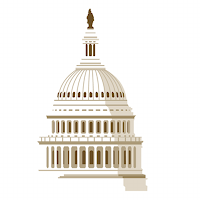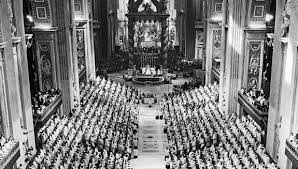One of the traits of right-wing pseudo-intellectualism is reference to the government as the « regime. » This is a bowdlerization of the usage of the term « regime » by the famous conservative political philosopher Leo Strauss (1899-1973), who was once very ideologically influential (at least within a certain narrowly constructed philosophical circle). Strauss has been credited by some for the « restoration of regime consciousness. » Like the tendentious use of « government schools » as a pejorative for « public schools, » the abuse of the term « regime » is peculiarly problematic.
Even weirder, however, is the bizarre fondness in some right-wing pseudo-intellectual circles of the terms « The Cathedral » as a pejorative to refer to whatever certain authors consider « the establishment » (a hostile establishment, of course, hostile to them), an alliance of perceived elites whom they don’t like in academia, media, government, and even business.
Now people misuse words in service of their ideological agenda all the time. If the Right does it, so does the Left. (Look at the increasingly ubiquitous ideological use of the benevolent sounding term « care, » as in « abortion care, » or « gender affirming care. »)
What is particularly peculiar about this distorted use of the word « cathedral, » however, is that it is sometimes employed by people who profess to be practicing faithful Christians of one sort or other. One must assume that such people are aware that « cathedral » is a Christian term with a very specific religious reference in Churches and denominations which possess an episcopal structure. A church can be very important in a community’s religious life without being a cathedral (e.g., Saint Peter’s Basilica, Westminster Abbey), But s cathedral church, even a rather small and artistically indifferent one is inherently important in the life of the local religious community.
So it is more than passing strange to see and hear this noble, religious term being used in such an abusive way for something certain authors disdain and despise.
Is this yet one more example of the increasing surrender of right-wing Christianity to a purely political paradigm? Is this, then, one more piece of evidence to support the claim that religion on the American political right is increasingly being reduced to becoming largely a vehicle for the expression of political and ideological identity? If so, the cost to humanity is more than merely lingusitic.




